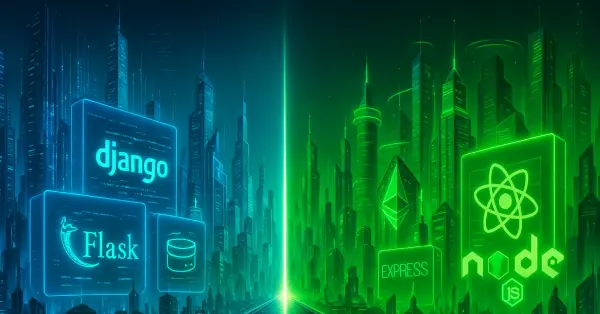Full Stack Python vs MERN: Which Stack Is Better for You?
In the fast-paced world of web development, full stack developers are among the most sought-after professionals. Whether you’re a student aspiring to start your career, a working professional looking to upskill, or someone planning a career switch, learning full stack development can open the door to endless opportunities. Two of the most popular technology stacks today are Python full stack and MERN stack—but the big question remains: Which is better for you?
In our earlier discussions, we discussed the misconceptions around mastering Python full stack technologies and how the right approach can make learning easier and more effective. In this article, we’ll compare the Python stack and the MERN stack to help you choose the right learning path for your goals.
What a Full Stack Python Course Teaches You
A full stack Python course focuses on using Python for backend development, combined with front-end technologies such as HTML, CSS, and JavaScript. You’ll also learn frameworks like Django or Flask, which simplify backend coding and enhance application performance. Python stands out for its simplicity, readability, and flexibility. It’s widely used not just in web development but also in data science, machine learning, and AI, giving learners an edge in multiple domains.
Key Benefits of Learning Full Stack Python
- Beginner-Friendly Language: Python’s clean and easy syntax makes it perfect for new learners.
- Fast Development Cycles: Frameworks like Django and Flask allow rapid prototyping.
- Versatility: Python skills can be applied across web, AI, and automation fields.
- Strong Community Support: Access to a massive community and open-source libraries.
- High Career Scope: In-demand for startups and tech companies focusing on innovation.
What a MERN Full Stack Course Teaches You
A MERN stack focuses on JavaScript-based technologies: MongoDB, Express.js, React.js, and Node.js. It allows developers to work on both the front-end and backend using a single language—JavaScript. This stack is widely adopted for building high-performance, scalable, and real-time applications. MERN is ideal for developers aiming to work in fast-paced, product-driven environments.
Key Benefits of Learning MERN Stack
- Single Language Advantage: Use JavaScript across both client and server sides.
- High Performance: Node.js ensures fast and efficient server operations.
- Dynamic Front-End: React.js enables responsive and interactive user interfaces.
- Popular in Startups: Perfect for agile, quick-to-market projects.
- Strong Industry Adoption: Favored by modern tech companies for app scalability.
Which Should You Choose?
Your choice depends on your career goals and personal preferences:
- Choose Python full stack training if you want to work across multiple domains such as web development, AI, automation, and data analysis.
- Choose the MERN stack if you want to focus on high-performance web applications and product-based startups.
Both stacks have strong career potential and global demand. It’s not about which one is “better”—it’s about which aligns with the kind of developer you want to become.
Conclusion
Both Python and MERN stacks offer exciting career opportunities for aspiring developers. Python provides flexibility and cross-domain applications, while MERN empowers you to build fast, dynamic, and scalable web solutions. Whichever path you choose, enrolling with reputed software training institutes will help you gain hands-on experience, industry-level project exposure, and strong placement support.
Ready to start your full stack development journey? Contact us to get expert guidance and begin your career transformation today!






